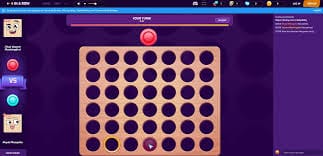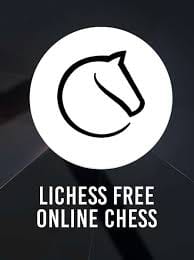Lichess
In the world of online chess, Lichess stands out as a beacon of accessibility, innovation, and community-driven passion. Launched in 2010 by French programmer Thibault Duplessis, this free, open-source platform has revolutionized how players engage with the ancient game of chess. Pronounced “lee-chess,” its name combines “live,” “light,” and “libre” with chess, reflecting its real-time play, lightweight design, and commitment to freedom from ads and paywalls. With over five million daily games and a suite of powerful features, Lichess has become a global favorite for casual players, grandmasters, and educators alike. This article explores its origins, mechanics, features, educational value, and cultural impact, revealing why Lichess is a cornerstone of modern chess culture.

Origins and Philosophy
Lichess was born from a vision to make chess accessible to everyone. Duplessis, frustrated by the commercialization of other chess platforms, created Lichess as a non-profit, open-source project under the AGPL license. Funded entirely by donations from patrons, it remains ad-free and fully accessible, with all features available without subscription. The platform’s code, dubbed “lila” (short for Lichess in Scala), is written in the intuitive Scala programming language, and its openness has inspired other open-source projects. Since its launch, Lichess has grown exponentially, hosting over 150,000 daily users and major events like the Titled Arena, attracting players like Magnus Carlsen and Alireza Firouzja.
The platform’s ethos—free forever, driven by love for chess—sets it apart. Volunteers maintain and update Lichess, ensuring a clean, user-friendly interface. Its commitment to privacy and data security, with minimal data collection, further enhances its appeal in an era of monetized platforms.
Gameplay and Features
Lichess offers a robust suite of features catering to all skill levels. Players can engage in real-time chess (bullet, blitz, rapid, classical) or correspondence chess, with time controls ranging from ultra-fast bullet (1 minute) to leisurely multi-day games. The platform supports standard chess and eight chess variants, including Chess960, Crazyhouse, Antichess, and Horde, adding variety for adventurous players.
Key features include:
- Chess Puzzles: Over five million rated puzzles, generated from 600 million analyzed games, help players sharpen tactics. Puzzle Storm challenges users to solve puzzles against the clock, while Puzzle Dashboard highlights strengths and weaknesses.
- Game Analysis: Powered by Stockfish 16, Lichess provides computer analysis with move annotations and centipawn evaluations, helping players learn from mistakes. The analysis board includes an opening explorer and endgame tablebase for deeper study.
- Tournaments: Players can join arena tournaments or create custom ones with Swiss or thematic formats. The Titled Arena, featuring grandmasters, offers high-stakes bullet and blitz battles, with Magnus Carlsen holding a record 17 victories.
- Study Tool: The Study feature allows collaborative analysis, note-taking, and sharing of games or positions, making it ideal for coaching or group learning.
- Variants and Tools: Beyond chess variants, Lichess offers a board editor, chess clock, and over-the-board mode for offline play with friends. It’s available in 80 languages and supports customizable board themes and piece sets.
Players can access their game history by clicking their profile and selecting the Games tab, with options to download PGN files for analysis in tools like ChessBase. The opening explorer lets users study specific positions, filtering by their own games or master databases.
Accessibility and Platforms
Lichess is designed for universal access. Its web-based interface requires no registration, though accounts enable rated games and stat tracking. The mobile app, available on Android and iOS, supports both online and offline play, with features like Puzzle Storm and Lichess TV for watching live games. Despite some user feedback about mobile bugs, such as unintended moves in bullet games, the app is praised for its clean design and frequent updates.
The platform’s open-source nature ensures compatibility across devices, including low-end phones, and its no-ads policy enhances the user experience. Lichess also supports accessibility, with keyboard shortcuts and translations in 55 languages, making it inclusive for global audiences.
Educational Value
Lichess is a powerful educational tool, particularly for young players and classrooms. Its chess puzzles teach tactics like forks, pins, and discovered attacks, while the Study feature supports coaching and group analysis. The platform’s free resources, including chess basics, coordinate training, and a video library, make it ideal for beginners.
For advanced players, computer analysis with Stockfish provides insights into centipawn losses and optimal moves, fostering strategic thinking. The 4545 Lichess League, established in 2015, promotes team-based competition in classical chess, enhancing community engagement. Educators use Lichess to teach problem-solving, critical thinking, and even math concepts through board coordinates and time management.
Cultural Impact and Community
Lichess has left a significant mark on chess culture. Its Titled Arenas and partnerships with organizations like the Saint Louis Chess Club have hosted high-profile events, including the $265,000 Clutch Chess: International in 2020, won by Magnus Carlsen. Charity events, like the Play for Russia fundraiser, raised $335,000 for COVID-19 relief, showcasing the platform’s social impact.
The Lichess community thrives on platforms like Reddit and X, where players share strategies, discuss openings, and celebrate milestones. Posts on X praise Lichess for its open-source model and lack of paywalls, contrasting it with subscription-based platforms. The Game of the Month contest encourages players to submit their best standard games, fostering creativity and engagement.
Lichess also supports titled players, recognizing FIDE titles like Grandmaster and International Master for participation in exclusive events. Players can verify titles via a simple form, ensuring authenticity.
Challenges and Future
While Lichess excels, it faces challenges. Some users report mobile app issues, like unintended moves in timed games, and suggest improvements like a toggle for move arrows. The platform’s reliance on donations and volunteers requires ongoing community support to maintain its free model.
Looking ahead, Lichess continues to innovate, with updates like Stockfish 16.1 integration and new Streamer Arenas. Its commitment to open-source development ensures it evolves with user needs, maintaining its status as a leader in online chess.

Conclusion
Lichess is more than a chess platform—it’s a movement that democratizes the game. Its free, ad-free, and open-source ethos, combined with powerful features like puzzles, analysis tools, and variants, makes it a haven for chess enthusiasts. From beginners learning tactics to grandmasters competing in Titled Arenas, Lichess caters to all. As it continues to grow, hosting millions of daily games and fostering a global community, Lichess proves that passion for chess can thrive without barriers, one move at a time.
